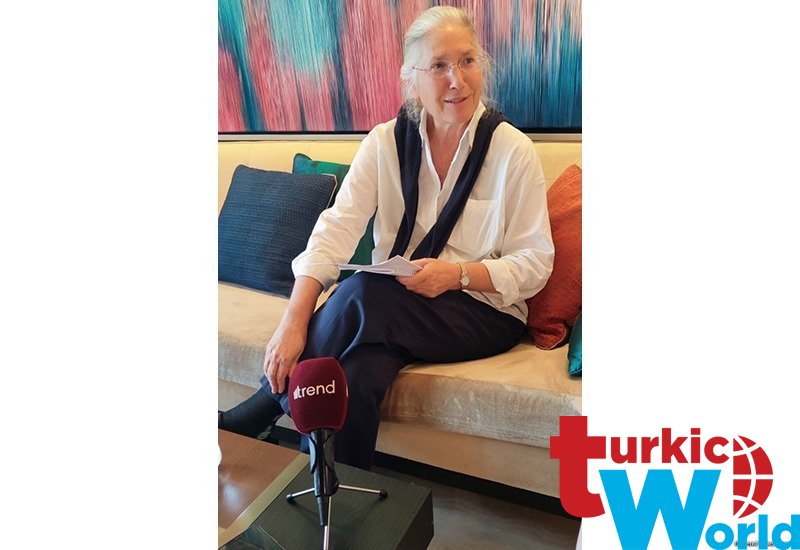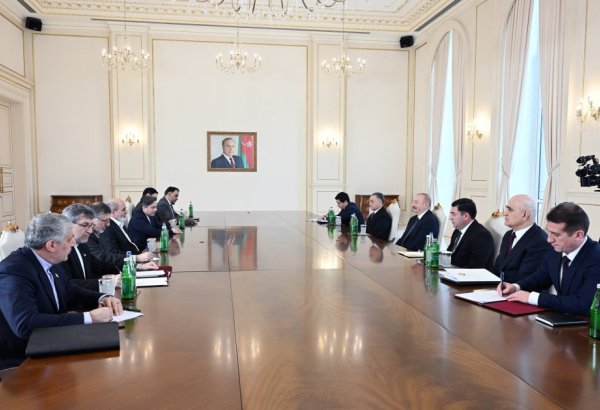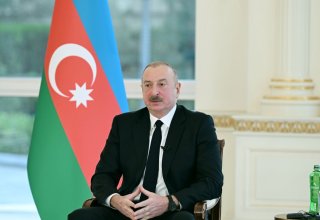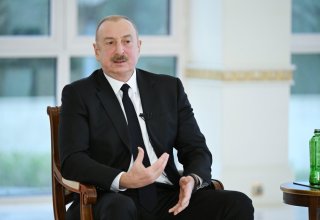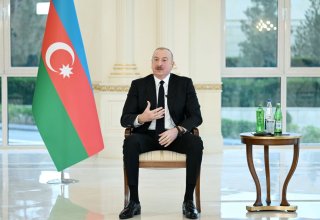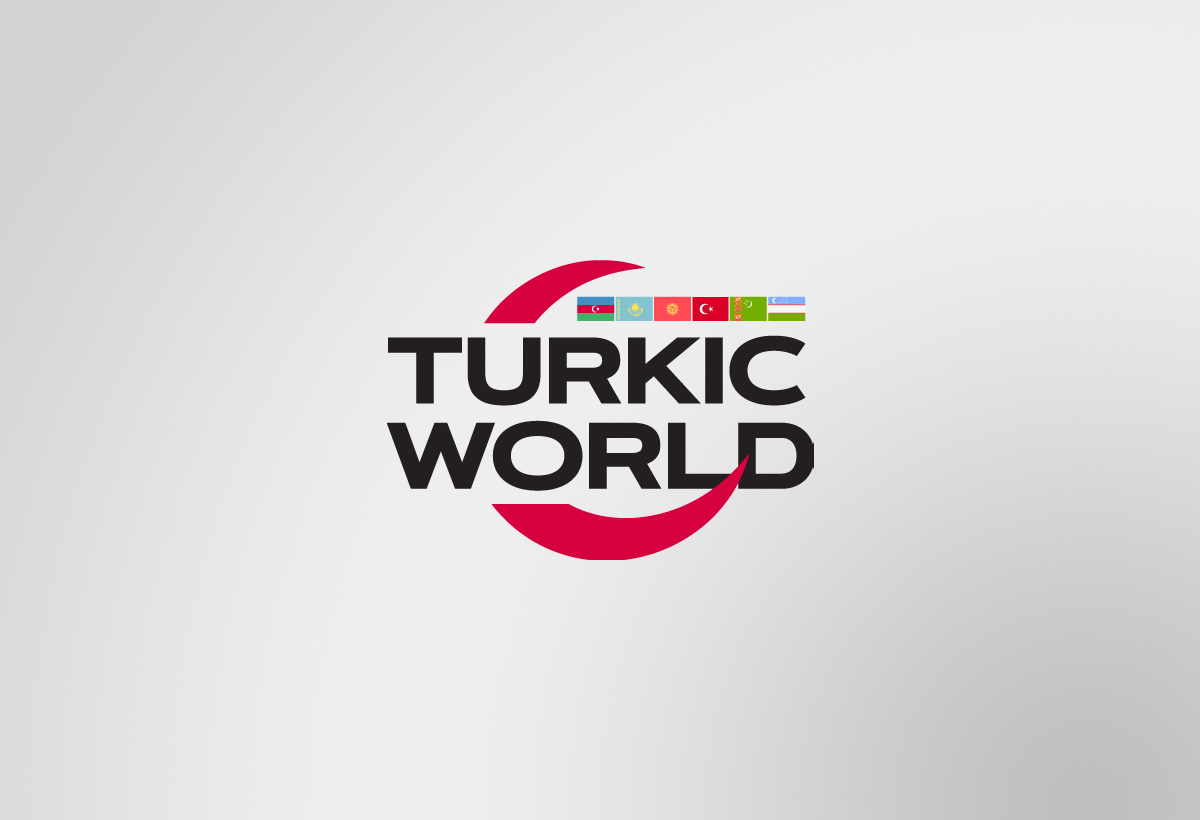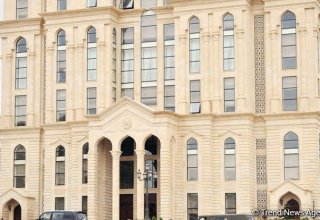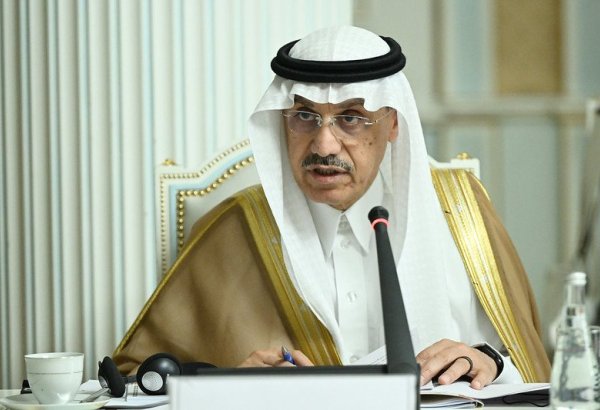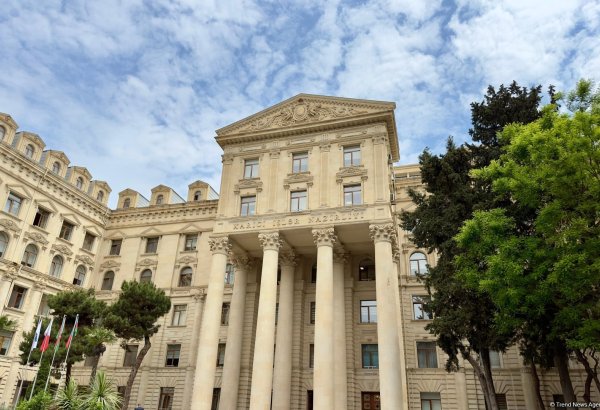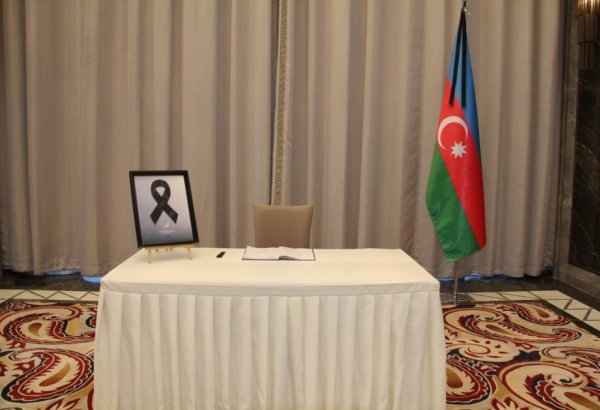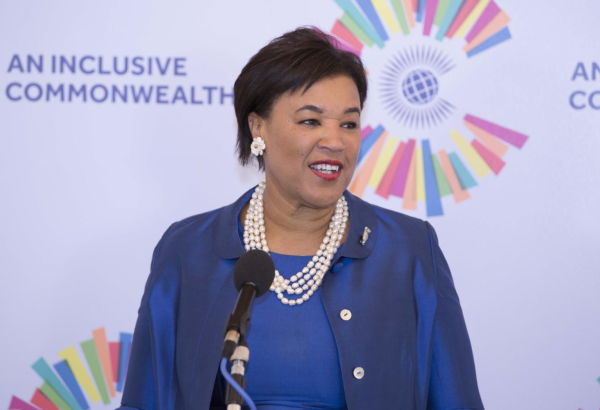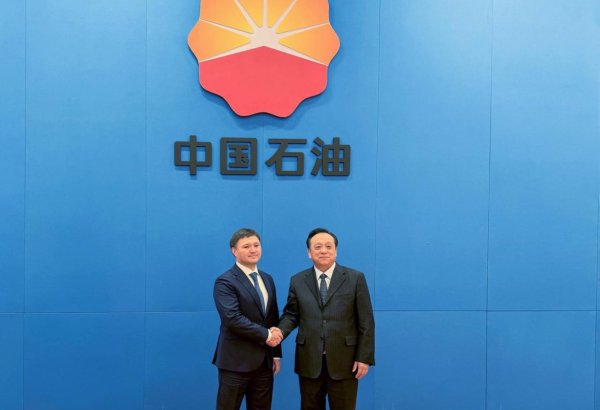BAKU, Azerbaijan, September 18. The US, Azerbaijan and China will hold a triple-hosted event at COP29, Sue Biniaz, the US State Department’s Principal Deputy Special Envoy for Climate, said in an exclusive interview with TurkicWorld, as she visited Baku.
"It's been a real pleasure to have another opportunity to talk to the Azerbaijani team about COP29. We've discussed several issues, as we normally do when we're able to get together. We, first of all, talk about several issues that are under negotiation at COP29. One of them relates to Article 6 of the Paris Agreement. Not to get too technical, but that article deals with market mechanisms and emissions trading between parties. It's almost done, but has a few outstanding issues, and we have a common interest with the host country in getting those issues done at this COP. We also talk about mitigation. That was a very important outcome of last year's COP," she said.
Biniaz pointed out that the first Global Stocktake under the Paris Agreement led to something, a rather lengthy decision, a part of which was devoted to mitigation and reduction of emissions and it almost provides a roadmap to keeping the global temperature rise to below 1.5 degrees.
"We want to make sure that it stays alive and that part of the COP29 outcome refers to it, recalls it, and implements it. The biggest issue that's under negotiation this year is on the new collective quantified goal, which many people call NCQG for short. The developed countries in 2009 committed to a goal of mobilizing $100 billion for the benefit of developing countries every year starting in 2020. When the Paris Agreement was concluded, the question was do they continue this goal? Who contributes? How much? In 2015 they decided to extend the goal through 2025 and then revisit it and update it this year, in 2024, so basically at COP29. The issues this year include what kind of goal are we talking about, how much money, who contributes, etc. That's the big marquee item that is up for negotiation at COP29," said the deputy special envoy.
Biniaz went on to add that the other thing that the US has been talking to the Azerbaijani team about are things that are not actually part of the COP, technically speaking, but the COP can add momentum to these issues.
"One of them is that the first transparency reports under the Paris Agreement are due on December 31, just a few weeks after the COP. So we have a common interest in promoting timely submission by parties to the Paris Agreement of these reports. These are called Biennial Transparency Reports (BTRs). Also, the next round of Paris Emission Targets, or Nationally Determined Contributions, are due in a couple months after the COP, February 10 to be exact. So we have also a common interest with Azerbaijan in promoting timely submission of NDCs that are ambitious and help to keep this 1.5 degree limit within reach," she said.
US priorities at COP29
Biniaz highlighted that one area of focus for the United States and other parties at COP29 is going to be the negotiation issues.
"Those are kind of the mandatory things that need to be decided at COP29. Then there's a whole set of other things that we're focused on that, broadly speaking, are called the action agenda. Those are the things that are not, strictly speaking, negotiated, and definitely not negotiated among 200 countries. They may be negotiated among smaller groups of countries, or they might just be events or announcements by one or two or several countries. As part of the action agenda, Azerbaijan has its own priorities, and we're involved in some of those, and those will be priorities for us. We'll also have some US priorities at the COP. Some of those relate to mitigation, some of them adaptation, some of them finance. In fact, we are doing an event with China and Azerbaijan, kind of triple-hosted, focusing on the gases other than carbon dioxide. This is going to be one of the high-level events during the first two days, during the Leaders' Summit, and we're looking forward to that. Another thing we're focusing on is the US Center. Every year at the COP, we have our own show place, where we put on many events. This year, I think it will be about 50 events that the US puts on. It's a chance to showcase what the United States is doing at home, what our subnational governments, cities, states are doing and what we're doing internationally with other countries," she explained.
Concrete outcomes expected from COP29
She pointed out that the major issue under negotiation is this new collective quantified goal, the NCQG, and that's the successor to the existing $100 billion goal.
"So there we see a concrete outcome in the form of a decision of the parties. We're focused on maybe four aspects at least. One is that we think this goal needs to have more than one layer. We think it has to have one component that focuses on how much money in the world needs to go into the climate issue, both to keep 1.5 degrees alive and also to promote global resilience and adaptation to climate impacts, and we've been referring to that as a global investment goal. That includes all countries. It includes international finance, domestic finance, etc. It's a large number. The second layer we refer to as the support goal, and that's more like the $100 billion. It's more like what certain contributors end up contributing towards developing countries in terms of public finance, but also the private finance. The third point is that that support goal, the inner layer, needs to be a realistically achievable number. It needs to kind of stretch the parties to a little beyond their comfort zone, but it can't be some kind of number that is just unachievable and will interfere with the credibility of the Paris Agreement process. The fourth point is that that support goal, we think, needs new contributors. We think we need more countries to join the group of contributors, those that are capable of being contributors," the deputy special envoy added.
Carbon pricing mechanisms
Further, Biniaz noted that high-integrity carbon markets represent a potentially promising channel to unlock significant additional capital and greenhouse gas mitigation.
"I say potentially promising because they have to be done right. If they're done right, carbon markets can support decarbonization, help limit global average temperature increase to 1.5 degrees, and leverage private sector action. So it's important to the United States that we shape responsible design, implementation, and use of market-based measures. And we're pursuing that goal in a number of different ways. Internationally, we're deeply involved in ensuring the integrity of the CORSIA mechanism. That's something that was designed within the International Civil Aviation Organization as an offset mechanism for emissions from the international aviation sector. We're also working with global certification mechanisms under the World Bank and high-quality carbon market initiatives like the LEAF coalition, which has to do with avoiding deforestation, and the Energy Transition Accelerator, which helps developing countries move towards clean energy. This COP is going to be focused very much on completing the guidelines under Article 6, and we're pushing for high-integrity outcomes with respect to the Article 6 guidelines," she said.
US-Azerbaijan cooperation within COP29
Biniaz highlighted that the US is working with Azerbaijan in many different ways to promote the success of COP29.
"From the very beginning, after Azerbaijan was named as the COP29 president, we've been discussing the issues that are under negotiation, ones that I've already mentioned, including ways to promote the successful submission of these biennial transparency reports, NDCs in February, etc. The second thing is that we've been co-leading, or we will be co-leading certain initiatives with the government of Azerbaijan. We co-hosted a workshop recently for the benefit of African countries on getting their biennial transparency reports ready to go for the deadline at the end of this year. As I mentioned, with China, US and Azerbaijan, we're putting together this high-level event on non-carbon dioxide greenhouse gases. It's the second time we will be doing that kind of event. We did one at COP28 when the UAE was the president, and this time we're going to do it with Azerbaijan," she said.
Biniaz went on to add that the third thing is that the US is supporting many of the Azerbaijani initiatives and events for this COP.
"We'll be attending many of them next week in New York at Climate Week, and we're supporting many of the declarations that the COP presidency has put forward for adoption at COP29. We're very impressed with the Azerbaijani team. I think they've done a great job. They were given this COP29 assignment kind of abruptly, pretty late by the standards of the COP, and they really jumped in and have really done a great job learning the issues and exercising leadership," she said.
The deputy special envoy pointed out that the push toward green energy will definitely feature at COP29, so it's great to see Azerbaijan taking a leadership role on this issue.
"The US and Azerbaijan have a long history of cooperation on energy security, and we support, of course, the transition into green energy. US companies, whether they're big or small, are interested in entering the green energy market and cooperating with Azerbaijan on new technologies, and we definitely encourage these partnerships. Azerbaijan has shown with the Southern Gas Corridor that it's a reliable supplier of gas to Europe, and this lends a lot of credibility to Azerbaijan's plans to expand the model into the renewable energy sector and become a green energy supplier to Europe," she said.
Further, Biniaz noted that the US looks forward to learning more about the Green Energy Corridor project, including potential opportunities for the US government and the US private sector to get engaged.
"More broadly, we're interested in continuing to learn about the potential of offshore wind to help decarbonize the Azerbaijani power system, to advance the industrial transition, and to spur potential export opportunities. We also want to underline that there's strong potential in Azerbaijan for other renewable energy deployment, given solar and wind resources. US companies of all sizes and shapes are interested in entering the green energy market and cooperating on new technologies. Our excellent cooperation on COP29, is a proof of concept that when we work together on shared interests, we can have a successful outcome that benefits both our countries and beyond. And there are many areas beyond climate where we have a common interest, including clean energy innovation, regional peace and security, and we would like to continue to cooperate on these shared interests," she concluded.








